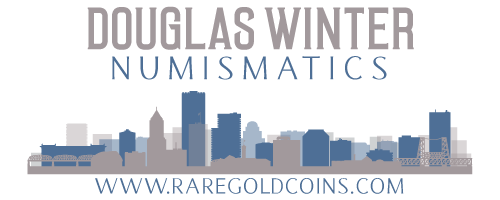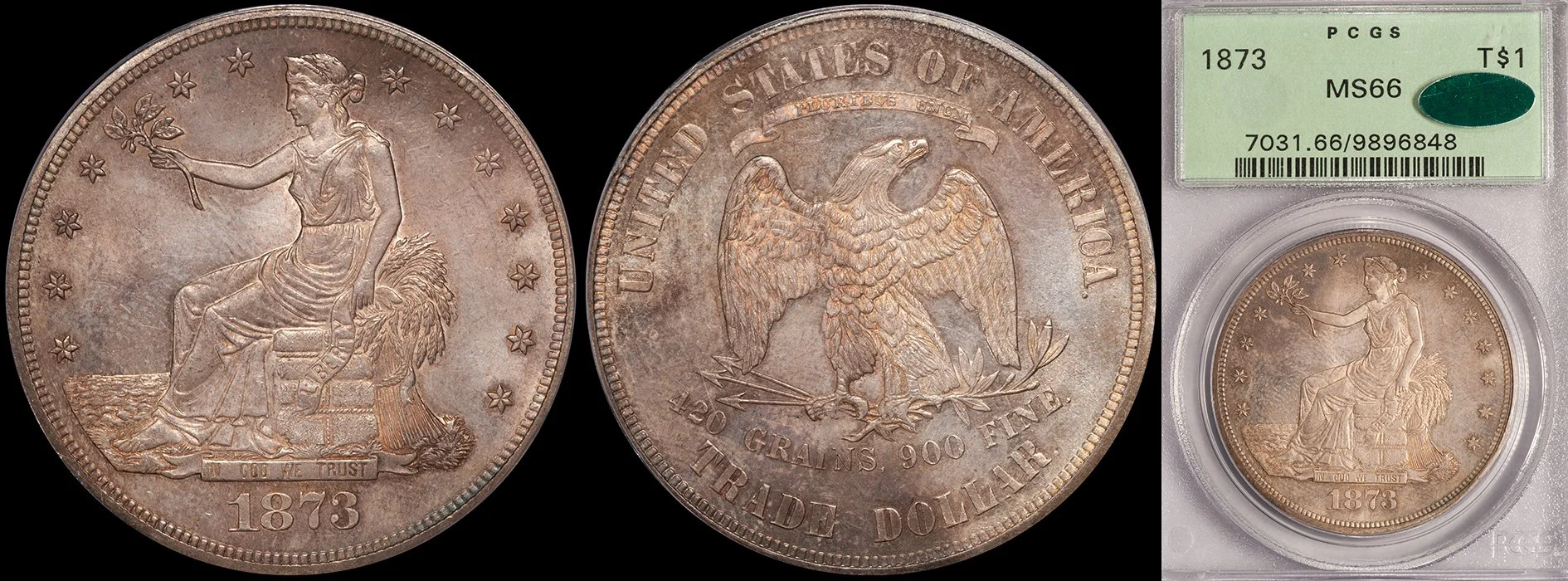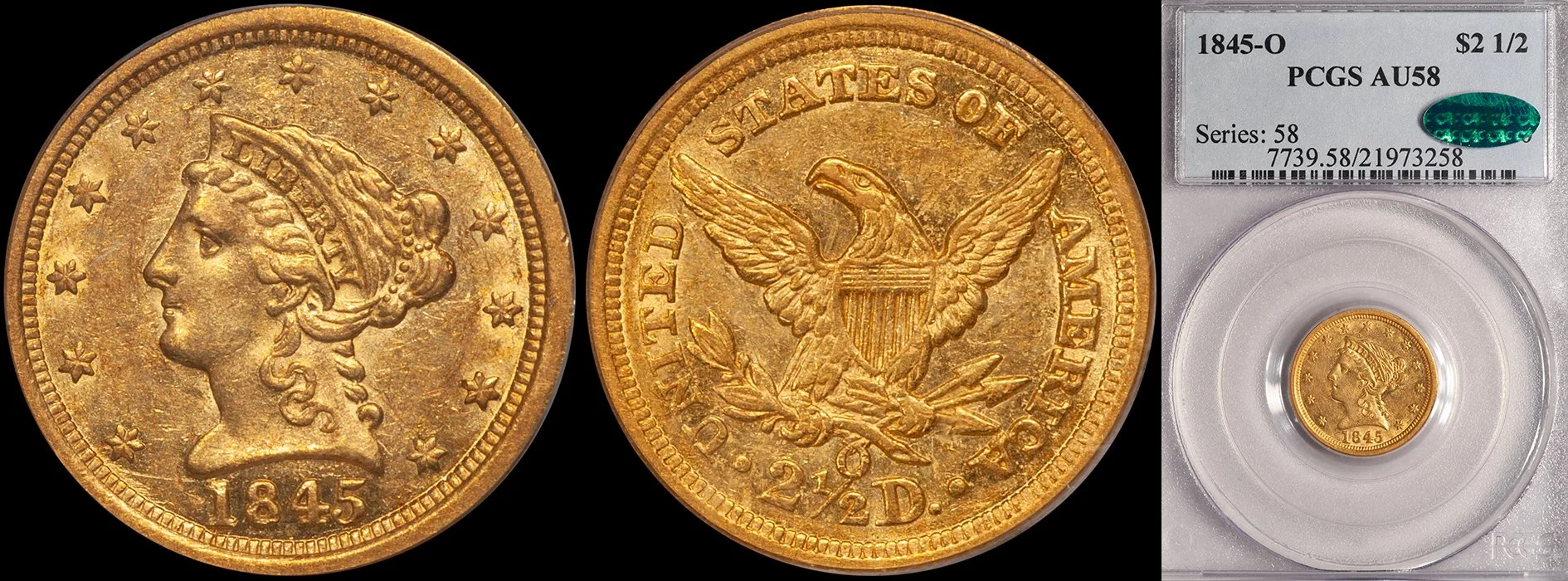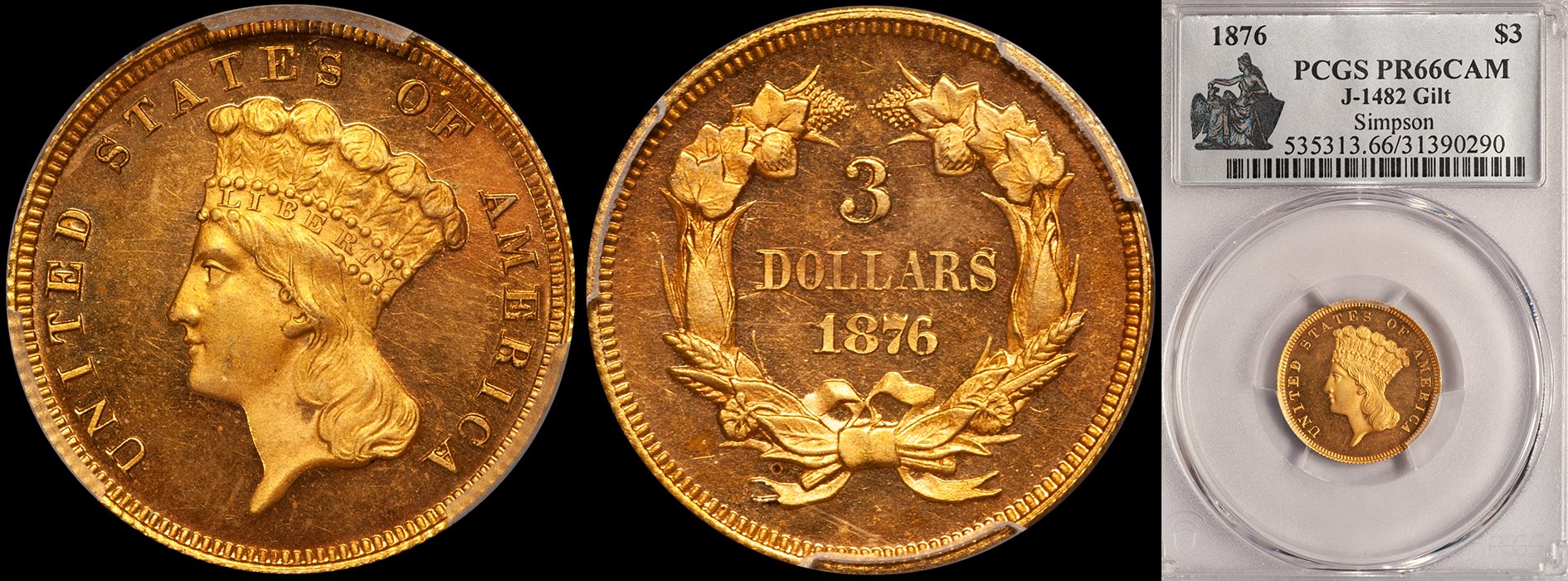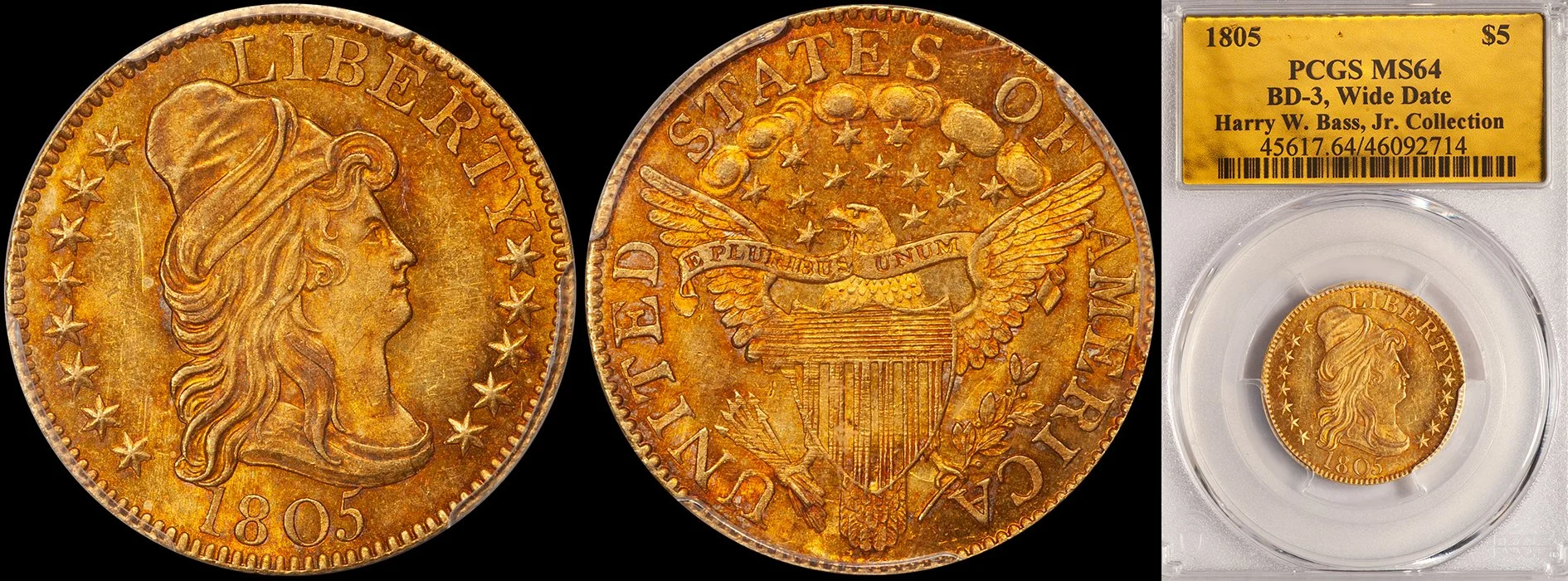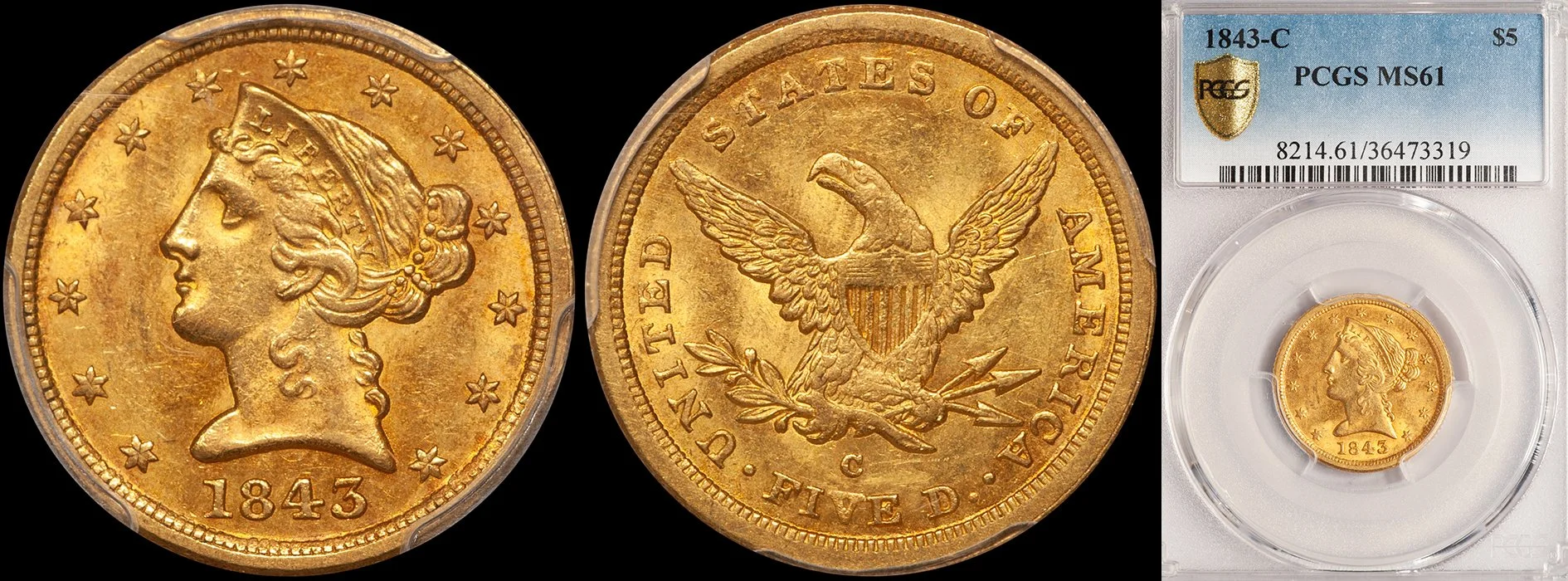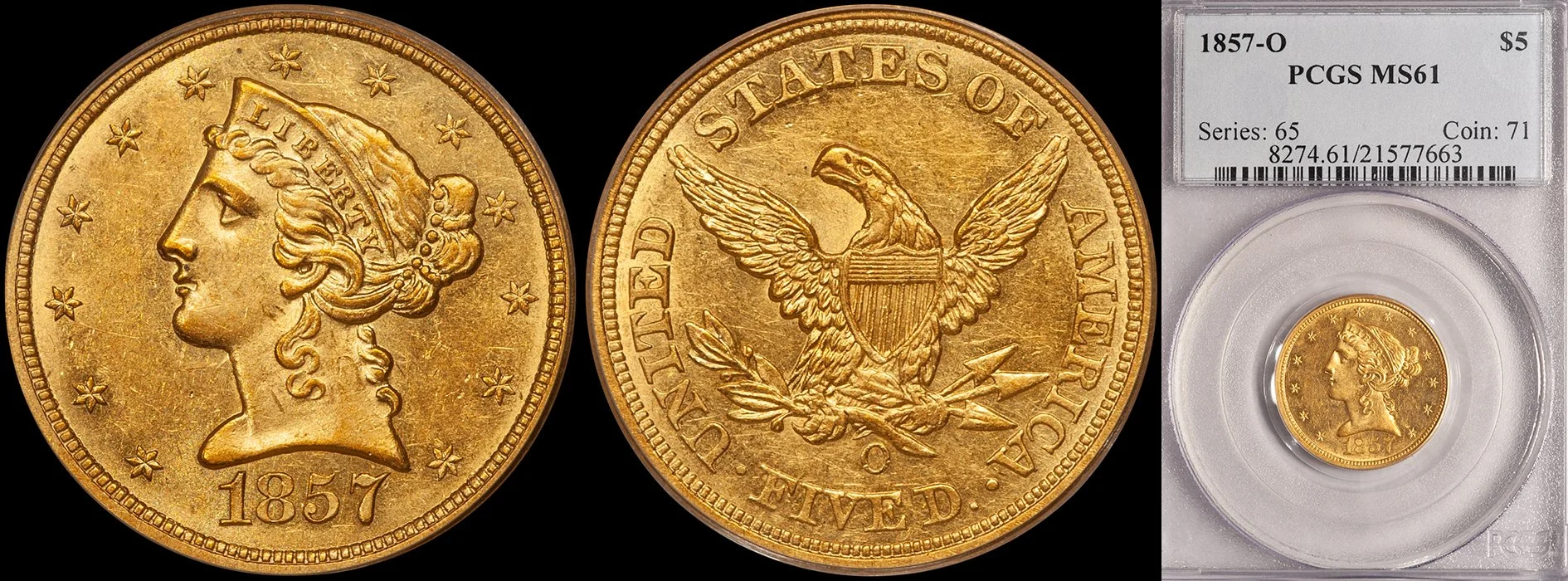Appearance Rarity of Dahlonega Half Eagles Revisited
/CAC approval of third-party graded US coins has created an important standard which I termed “appearance rarity”…
Read MoreThe Appearance Rarity of No Motto New Orleans Eagles
/It is my contention that CAC has now seen enough coins that we can make important observations about how rare (or not rare) a specific issue is in regards to its appearance…
Read MoreAppearance Rarity of Dahlonega and Charlotte Half Eagles
/As I have pointed out in other articles, perhaps the single most important factor about CAC approval of third-party graded U.S. coins is that it creates a standard which I term “appearance rarity.” This refers to coins which are choice enough for their assigned grade to be accepted by CAC…
Read MoreThe Appearance Rarity of Liberty Head Quarter Eagles: How CAC Populations Help Determine Which Dates Are Rare
/After more than a decade of viewing coins, the numbers which CAC has approved are now a significant sample size. In the case of Liberty Head quarter eagles, I believe that any issue with fewer than eight pieces approved show true appearance rarity.
Read More10 Rare Date Gold Coins with Surprisingly Low/High CAC Populations
/To me, CAC populations help to quantify quality. By this, I mean that if 8 examples of a specific date of Liberty Head half eagle have been approved by CAC, we can assume that there are at least 8 above-average examples of this date with some degree of originality and eye appeal. A figure of “8” at PCGS is not as quantifiable when it comes to quality.
Read MoreCAC Populations and Appearance Rarity: An Analysis
/As I wrote in an earlier article, CAC populations have created a new category of rarity: the appearance rarity, which is most akin to traditional condition rarity. A scan of the most recent CAC populations reveals a number of coins which are very surprising to me as appearance rarities.
Read MoreCAC and Type One Liberty Head Double Eagles
/CAC has had a profound impact on the rare date gold market, and one of the series which has seen significant changes as a result of CAC is Type One Liberty Head double eagles. Auction results and private transactions for coins with CAC stickers, especially rare dates, show a strong price appreciation; sometimes as high as 40-50% for those coins with stickers. But this article isn’t a price analysis. I am more interested in focusing on the number of coins with CAC approval for each date and looking for “surprises” within the context of these numbers.
For the sake of convenience, we can divide the various Type One dates into three groups. The first bunch—or Group A—consists of coins with CAC populations of fewer than 10 in all grades. The second bunch—or Group B—consists of coins with CAC populations between 10 and 25 in all grades. The third and final bunch—Group C—consists of coins with populations of 25 or higher.
Let’s take a look at Group A.
|
RANK |
DATE |
TOTAL APPROVED BY CAC |
| 1. | 1854-O | 1 |
| 2. | 1860-O | 3 |
| 3. (tie) | 1856-O, 1862 | 4 |
| 5. (tie) | 1855-O, 1858-O, 1859 | 5 |
| 8. | 1859-O | 6 |
| 9. | 1861-S Paquet | 7 |
| 10. (tie) | 1861-O. 1866-S No Motto | 10 |
This first group contains some surprises. I wouldn’t have expected only three 1860-O double eagles to have been approved by CAC, and I certainly didn’t expect there to be one fewer of this date with CAC approval than for the celebrated 1856-O. I’ve handed two of the three CAC’d 1860-O double eagles and now that I realize how “special” these are, I wish I had asked a greater premium when I sold them!
I am surprised that only five 1858-O double eagles have been approved by CAC (none of these in higher grade) as I have personally handled some very nice About Uncirculated examples of this date. The rarity of the 1859 and 1862 Philadelphia issues doesn’t surprise me as these two dates tend to come bright and bagmarked; two things which do not score points with the finalizers at CAC. I am very surprised that seven 1861-S Paquets and ten 1866-S With Motto double eagles have been approved. If I had to venture a guess, I’d suggest that these numbers are inflated by resubmissions.
Now let’s look at Group B.
|
RANK |
DATE |
TOTAL APPROVED BY CAC |
| 1. (tie) | 1854 Lg. Dt., 1857-O | 12 |
| 3. | 1853/2 | 13 |
| 4. | 1854-S | 16 |
| 5. (tie) | 1858, 1863 | 18 |
| 6. | 1853-O | 20 |
| 7. | 1864 | 21 |
| 8. | 1855 | 22 |
I am surprised by a few dates on this list, both for how many have been approved and how many have not. In the former category, I find it odd that twelve 1857-O double eagles have been approved by CAC as compared to just five for the 1858-O. These two dates are very similar in rarity, both overall and in high grades. It is possible that this represents some resubmissions to CAC. I am also surprised that as many as twenty 1853-O double eagles have been approved as this is a date which, even in VF and EF grades, doesn’t tend to have the “look” that CAC favors.
The 1863 and 1864 are a bit less hard to locate with CAC stickers than I would have expected, but this is partially due to there being some nice higher grade examples from the S.S. Republic shipwreck.
The real surprise date in Group B is the 1858 with the same total number of coins approved by CAC as the much more pricey 1863. Only three Uncirculated 1858 double eagles have been approved by CAC and even About Uncirculated pieces are harder to locate than I would have expected.
The one date in Group B which deserves special mention is the 1854-S. Most of the CAC approved examples I have seen are from shipwrecks, and I doubt if more than three or four examples with original surfaces have been approved by CAC.
Let’s close out this article by looking at Group C.
|
RANK |
DATE |
TOTAL APPROVED BY CAC |
| 1. | 1856 | 29 |
| 2. | 1850-O | 29 |
| 3. | 1857 | 31 |
| 4. | 1861-S | 33 |
| 5. | 1852-O | 34 |
| 6. | 1860-S | 38 |
| 7. | 1864-S | 40 |
| 8. | 1858-S | 41 |
| 9. | 1863-S | 42 |
| 10. | 1854 Small Date | 43 |
| 11. | 1859-S | 47 |
| 11. (tie) | 1862-S | 47 |
| 11. (tie) | 1851 | 47 |
| 14. | 1851-O | 49 |
| 15. | 1860 | 55 |
| 16. | 1865-S | 62 |
| 17. (tie) | 1853, 1865 | 63 |
| 18. | 1855-S | 85 |
| 19. | 1852 | 88 |
| 20. | 1850 | 91 |
| 21. | 1856-S | 128 |
| 22. | 1861 | 163 |
| 23. | 1857-S | 515 |
In looking at Group C, I almost wonder if the cut-off list shouldn’t have been higher than 25 coins as the first few dates (1856, 1850-O, 1857, 1861-S and 1852-O) instinctively feel “scarcer” with CAC stickers than the other dates included in this group.
As you can see, Group C is populated by common dates and/or shipwreck issues and this is responsible, obviously, for higher CAC populations. The former category is best illustrated by the 1861 while the 1856-S and the 1857-S are the respective poster children for the latter.
The two shipwreck dates with lower CAC populations than I would have expected are the 1863-S and the 1864-S. Both issues have a number of higher grade survivors from the S.S. Brother Jonathan and the S.S. Republic and it surprises me that there aren’t at least twice as many examples for each date with CAC stickers.
The two dates in Group C that strike me as having higher CAC populations than I would have expected were the 1850-O and the 1855-S. I have handled numerous 1850-O double eagles and I’d say that no more than 10% of the ones I have owned have been CAC quality. The 1855-S is one of the most frequently seen Type One issues with CAC approval. This is most likely due to shipwreck coins but I can’t recall having seen all that many non-shipwreck pieces with CAC stickers.
One of the many things that CAC has done for the Type One market is to get collectors better focused on choice, original coins. The price premiums for the low population Group A coins have, in some cases, greatly exceeded the levels for “typical” coins and this is the case in nearly all grade ranges. The price premiums for the Group B and Group C are not as profound (yet) but as more collectors seek CAC approved coins, the premiums for these may increase to levels close to those seen on Group A dates.
Do you buy rare gold coins?
Do you have coins to sell?
Would you like to have the world’s leading expert help you assemble a set of coins?
Contact me, Doug Winter, directly at (214) 675-9897 or by email at dwn@ont.com.
